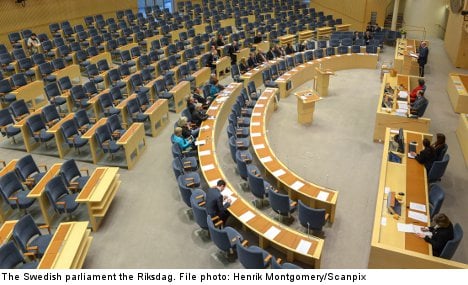A report by The Association of Public Relations Consultancies in Sweden) (Föreningen Public Relations Konsultföretag i Sverige – PRECIS) last year outlined some differences between lobbying in Sweden, the EU and the US.
It quickly noted that “corruption doesn’t thrive in sunlight” had long been the guiding principle when introducing rules for lobbying in the US. Sweden, in contrast, has a more informal structure.
“This means there is tangible risk that we lack transparency,” the report noted.
Anna-Karin Hedlund, managing director at Diplomat Communications and PRECIS chairwoman, said that while Sweden did not, for example, require that lobbyists be registered as such, there is a culture of openness in Sweden that she hoped the industry would continue to foster.
She said that former politicians who moved over to lobbying shared those values.
“Consultants often set up meetings rather than take part in them, but if they do we always play with open cards about who you are representing,” Hedlund said.
“Swedish politicians haven’t made any specific decisions about how to regulate lobbying, like setting up rules about who gets access to parliament, who can ask to see which documents, or who can call themselves a lobbyist.”
Hedlund argued some types of would-be regulations could simply end up creating a great deal of paperwork without achieving the desired transparency.
“So if I visit someone in parliament, my visit is logged, but if I bump into someone I know who works as an MP on the street or socially, that conversation doesn’t show up in any register,” she offered as an example.
“There are also other European countries where PR firms are required to register, but law firms are not,” she added, saying that such a distinction was too fluid to be truly helpful.
She also noted that as far as comparisons to the US went, the Swedish political structure meant that a lone politician rarely acts outside their party platform.
“The party focus means there is a different avenue for lobbying,” Hedlund said.
“While the traditional image portrays the lobbyist courting individual politicians, you need a broader tactic in Sweden.”
She said lobbyists therefore spend more time on swaying public opinion and trying to exert influence over the parties as wholes.
“You can’t just pick an MP to target your efforts towards, as they are very tied to their party,” she explained.
Another key difference, according to Hedlund, is that big state agencies are more independent of the ministers in Sweden, while the order-of-the-day trickles down into public agencies more directly in the US.
“It is much harder to influence how state agencies [in Sweden] implement decisions because the public servants don’t depend on being re-elected once every four years.”
On Monday, the tabloid Aftonbladet reported that more than one in three of Swedish parliamentarians and top aides who have quit politics since 2006 ended up working for lobbyists in some capacity or other.
Hedlund admitted that while she and her colleagues had long shied away from the term “lobbyist”, the structure had been in place for a long time. Furthermore, many Swedish organizations and associations have long been adept at exerting political pressure. Hedlund mentioned the Swedish Trade Union Confederation (LO), the farmers association LRF and the Confederation of Swedish Enterprise (Svenskt näringsliv) as examples.
“It’s taken a very long time for lobbying to become professionalized in Sweden, yet specific groups influencing politics is something we’ve had for as long as we’ve had democracy,” Hedlund said.
“Maybe we woke up a bit late, as it is only in the past 20 years that we have had fully fledged companies who work with consultants on specific briefs.”
She reiterated that because the Swedish political process had many components to it, lobbyists often approached their briefs from many directions.
“We have a broad palette in moving public opinion along,” she said.
Ann Törnkvist



 Please whitelist us to continue reading.
Please whitelist us to continue reading.
Member comments